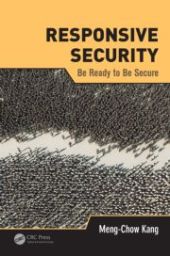Archive for April 2013
12th RAISE Forum Meeting at Jinan, Shandong
Talking about Shandong in the previous blog (“Before the ashes turn cold“) yesterday, in fact, I just came back from our 12th RAISE Forum meeting which was held at Jinan, the capital city of Shandong province in China on March 27 and 28, 2013. The meeting was co-sponsored and jointly organized by Beijing Powertime (北京时代新威) and Timesure, supported by the Association of China Information Security Industry (ACISI), and co-sponsored by (ISC)2.
Before the ashes turned cold
Bruce Schneier wrote an interesting piece recently about the use of technology for political purposes and suggests that we need “more research into how to circumvent these technologies”: https://www.schneier.com/blog/archives/2013/04/it_for_oppressi.html
Technology is like a knife (in fact, a knife is also a technology). It is double-edged. It depends on the user more than the provider in terms of its application. If a user uses a knife to kill a human being, it is against the law, it is even considered barbaric, animal, etc. We know the danger, but that alone does not stop us from using. If we look at the history of technology, explosive was discovered in China many years ago. The emperor then was worried about its negative effects and forbid further research and use. But its utility is far beyond the fear of the imperial order or the negative effects of an explosion. In the hands of the inquisitive minded scientists and the powerful politicians, it has since evolved and today it is not just gunpowder explosive that we are worried about anymore. The killing power of nuclear had been experienced, and yet many countries continue to justify for its use.
Finding ways to circumvent technology would reveal weaknesses that help the provider to strengthen it. It may even create a market selling the idea of its “safe use”. Even if a technology provider decides to discard it, another may acquire or reinvent it, as long as there’s a demand.
Beneath technology is intellectual, knowledge, and information. Knowledge is power. Information flows.
In the Qin (秦) dynasty period, the first emperor of China understood that knowledge is power, and was therefore fearful of the potential threats of scholars and their teachings to his rule of the country. As a result, the Qin emperor ordered the burning of books in an attempt to contain peoples’ knowledge to only those aligned with the government’s policies. Nevertheless, the dynasty was overthrown by two rebels who were illiterates. A poet in the late Tang dynasty summarizes this elegantly, “坑灰未冷山东乱,刘项原来不读书”, which roughly translates, “Before the ashes (of the books) turned cold, Shandong had already rebelled; Liu Bang (刘邦) and Xian Yu (项羽), the two leaders of the rebels were both illiterate.” A few emperors in subsequent dynasties did the same thing and again failed badly.
Today, we thought that China and many others would have learned from history that censorship is not an effective tool for maintaining control of information and power (based on the historical lessons learnt). But they don’t. Control gives the perception of power. Power blinds one from seeing things clearly. Letting go (detachment), as we learn in Buddhism, is not a simple thing.







